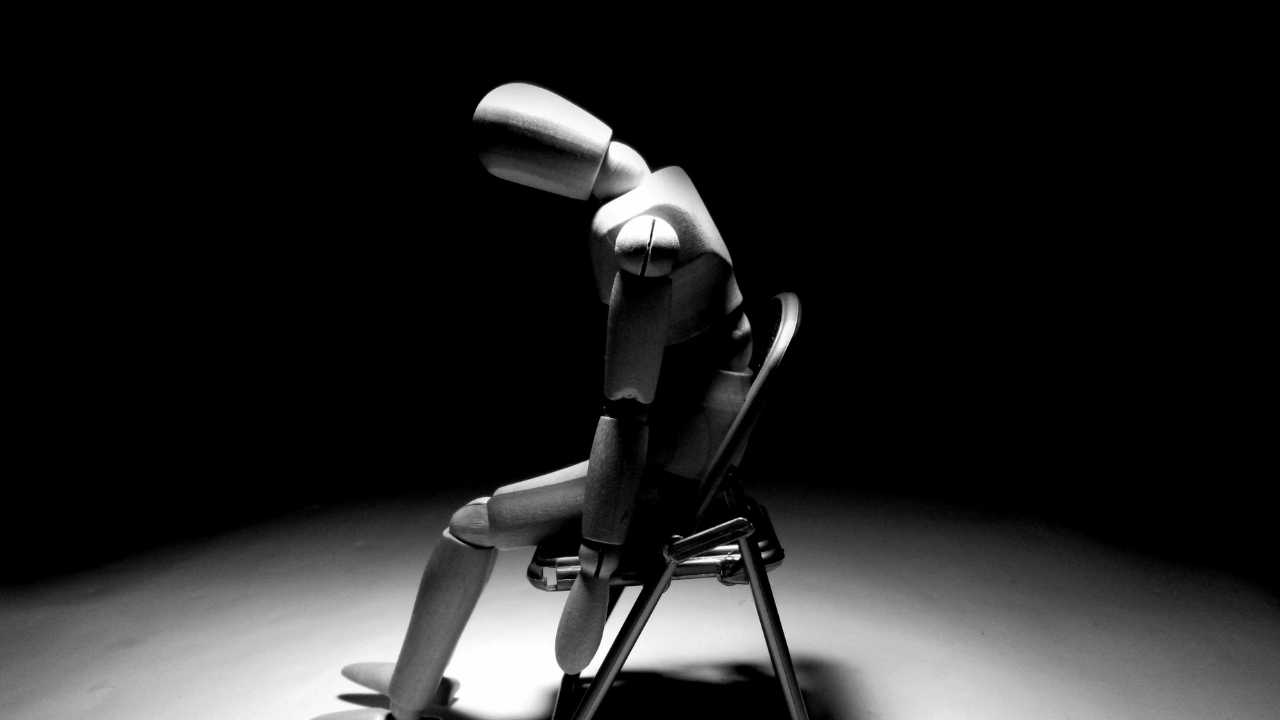Regret. The word itself carries a heavy, almost palpable weight. It’s the bitter aftertaste of a choice made, or not made, that lingers long after the moment has passed. It’s the phantom limb of an opportunity missed, an unkind word spoken, a dream abandoned. While a fleeting moment of regret can serve as a valuable lesson, allowing it to become a persistent companion transforms it from a teacher into a tormentor – indeed, your biggest enemy.
At its core, regret is a profoundly human emotion. It’s the mind’s way of reflecting on past events and identifying perceived deviations from an ideal outcome. This capacity for reflection is what allows us to learn, adapt, and grow. A mild pang of regret after a poor decision can prompt introspection and lead to better choices in the future. In this sense, regret can be a powerful catalyst for positive change, a guiding hand pushing us towards self-improvement.
Table of Contents

However, the line between constructive reflection and destructive rumination is perilously thin. When regret moves beyond a brief moment of self-correction and settles into a pervasive state of mind, it morphs into a formidable adversary. This insidious enemy operates by chaining us to the past, blinding us to the present, and crippling our ability to envision and pursue a fulfilling future.
The Tyranny of the “What If”
The primary weapon in regret’s arsenal is the relentless “what if.” What if I had taken that job offer? What if I had pursued my passion for art? What if I had told them how I truly felt? What if I had been more present with my loved ones? These questions, endlessly replayed in the mind, create an alternate reality where all the perceived errors of the past are rectified, and a perfect, unattainable outcome unfolds.
This constant hypothetical scenario is a form of mental self-flagellation. It drains energy, breeds self-recrimination, and fosters a sense of helplessness. The more we dwell on these “what ifs,” the more deeply entrenched we become in a cycle of negativity, where the only escape seems to be to somehow rewind time – an impossible feat. The tyranny of the “what if” isn’t about learning from the past; it’s about being perpetually haunted by it. It robs us of peace, replacing it with an unending inner dialogue of self-blame and missed opportunities.
Paralyzing the Present
One of the most damaging effects of regret is its ability to paralyze the present. When our minds are consumed by past grievances and missed chances, we become incapable of fully engaging with the here and now. The beauty of a sunset, the warmth of a loved one’s embrace, the joy of a new experience – all are dulled by the pervasive shadow of yesterday’s sorrow.
This present paralysis manifests in various ways. It can lead to procrastination, as the fear of making another “wrong” decision becomes overwhelming. Why try something new if it might lead to more regret? It can foster apathy, making us withdraw from social interactions and opportunities for growth because the energy to engage is constantly diverted to rehashing past mistakes. It can even impact our physical health, leading to stress, anxiety, and depression, as the mental burden of regret takes its toll on our well-being. Living in the past means forfeiting the present, and ultimately, a life lived fully.
Sabotaging the Future
Perhaps the most insidious aspect of regret as an enemy is its capacity to sabotage our future. When we are deeply entrenched in the grip of past regrets, our vision for what lies ahead becomes clouded and limited. The fear of repeating past mistakes can lead to an extreme aversion to risk, preventing us from pursuing new goals, daring to dream big, or even simply taking necessary steps forward.
This future sabotage can manifest as:
- Lost Opportunities: We might decline new job offers, avoid new relationships, or shy away from challenging projects, all because we fear making another decision that we might later regret.
- Stifled Growth: Personal and professional development often requires stepping out of our comfort zones. Regret, by anchoring us to the familiar (albeit painful) past, makes such leaps of faith incredibly difficult.
- Negative Self-Fulfilling Prophecies: Believing that we are prone to making bad decisions, or that happiness is forever out of reach because of past errors, can lead us to unconsciously create scenarios that confirm these beliefs.
- Diminished Hope: A future constantly viewed through the lens of past failures appears bleak and uninviting, extinguishing the very hope that fuels aspiration and resilience.
Regret, in this sense, becomes a self-imposed prison. It keeps us from evolving, learning, and ultimately, from reaching our full potential.
The Path to Freedom: Overcoming Regret
Recognizing regret as an enemy is the first crucial step towards disarming it. The good news is that while we cannot change the past, we can absolutely change our relationship with it. Overcoming regret involves a conscious and deliberate shift in perspective and action.
- Acknowledge and Validate, Then Release: It’s important not to suppress regret entirely. Acknowledge the feeling, understand why it’s there, and validate the emotions it evokes. “Yes, I regret that I didn’t spend more time with my grandparents.” This acknowledgment is not about dwelling, but about understanding. Once acknowledged, consciously decide to release the grip of that specific regret. Visualize it floating away, or place it in a mental box to be revisited only for learning, not for self-punishment.
- Embrace Imperfection and Self-Compassion: Life is inherently messy and unpredictable. We are all fallible beings, prone to mistakes and misjudgments. Instead of berating ourselves for not having acted perfectly in the past, cultivate self-compassion. Treat yourself with the same kindness and understanding you would offer a dear friend. Understand that you did the best you could with the information and emotional state you had at that moment.
- Extract the Lesson, Leave the Burden: Every regret holds a potential lesson. Instead of wallowing in the pain of the past, consciously ask: “What can I learn from this experience?” If you regret not taking a risk, the lesson might be to embrace courage more often. If you regret an unkind word, the lesson might be to practice more mindful communication. Once the lesson is extracted, detach from the emotional burden of the regret. The lesson is a tool for future growth; the burden is a weight that holds you back.
- Practice Mindfulness and Live in the Present: Deliberately bring your attention to the present moment. Engage your senses: notice the sights, sounds, smells, and textures around you. Practice gratitude for what you have in the here and now. Mindfulness exercises can train your brain to reduce rumination and increase your presence. This practice builds a stronger mental muscle for staying grounded and appreciating current experiences.
- Focus on What You Can Control (Now and Future): Regret focuses on the uncontrollable past. Shift your energy to what you can control: your actions, reactions, and choices in the present and future. Instead of lamenting a missed opportunity, focus on creating new ones. Instead of dwelling on a past mistake, focus on making amends or building a better future version of yourself.
- Take Action, No Matter How Small: The best antidote to the paralysis of regret is action. Even small, deliberate steps forward can chip away at its power. If you regret not pursuing a hobby, take a single class. If you regret a strained relationship, reach out with a genuine apology or an offer to reconnect. Action creates new experiences, new learning, and new possibilities, effectively diminishing the gravitational pull of the past.
- Reframe Your Narrative: Our personal narrative shapes our reality. Instead of seeing your past as a series of regrets and failures, reframe it as a journey of learning and growth. Every “mistake” contributed to who you are today. See yourself not as a victim of your past choices, but as a resilient individual who has learned valuable lessons and is now better equipped to navigate life’s complexities.
The Freedom of Forgiveness
Ultimately, overcoming regret involves a profound act of forgiveness – forgiving yourself. It means letting go of the expectation of perfection and accepting your human fallibility. It means releasing the self-inflicted punishment for what cannot be undone.
When you forgive yourself, you sever the chains that bind you to the past. You reclaim your energy, your focus, and your agency. This act of liberation allows you to step fully into the present, open to new experiences, and confidently chart a course towards a future unburdened by the echoes of yesterday.
Regret, if allowed to fester, will be your biggest enemy, stealing your joy, paralyzing your progress, and sabotaging your potential. But by understanding its insidious nature and actively employing strategies to disarm it, you can transform this internal adversary into a quiet mentor, leaving you free to live a life rich with presence, purpose, and boundless possibility. The past is a compass, not a chain. Choose to navigate forward.








